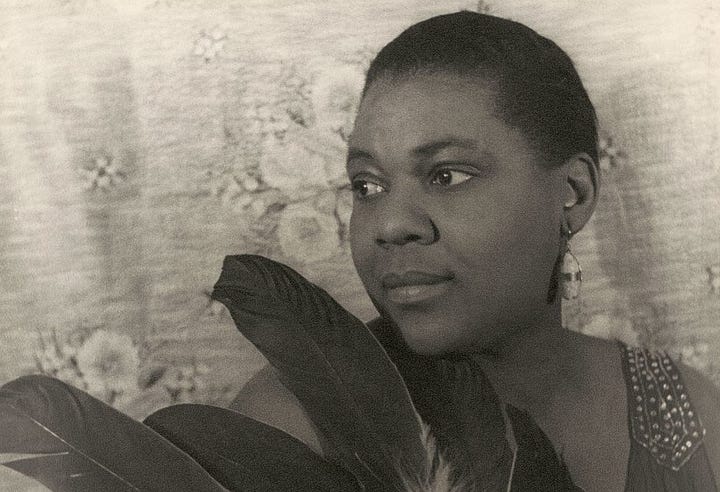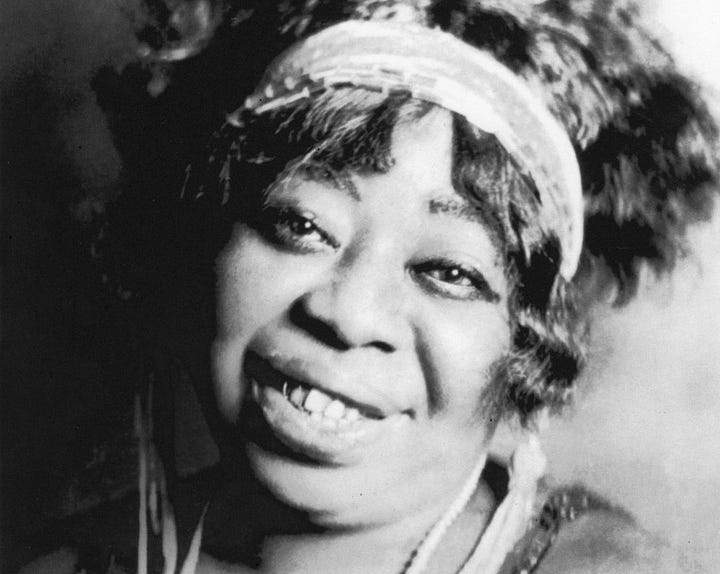Are the Blues forever?
A version of the Blues will exist as long as African-Americans need space to express their unfiltered truth.


You’re reading Part 6 of THE BLUES LIVES THROUGH — my new essay collection linking past and present music. The classic Blues singers Ma Rainey and Bessie Smith rose to stardom in the 1920s. 100 years later, I write about Black singers preserving the Blues storytelling traditions in the 2020s.
This collection has six (6) parts. I will be unlocking a new part each week and emailing to free subscribers on the dates below. Paid subscribers have access now. I suggest reading them in this order:
Time Travel Via The Blues (1/30)
Are the Blues forever? (2/27)
This took four months of reading, writing and fact-checking and is entirely self-funded and self-produced by me. So I’m glad it’s finally here, especially with Black History Month and Women’s History Month upon us. I can’t wait to hear your thoughts. Lastly, here is a YouTube playlist with all the songs mentioned in this series.
The future of the Blues…
Although deemed secular, the Blues are sacred to me as someone who is two generations removed from rural Southern sharecroppers via my paternal lineage and whose history has been censored, erased, and whitewashed in American media. It’s not just about enjoying the music; the Blues are an ancestral time capsule of great wisdom.
Keep reading with a 7-day free trial
Subscribe to Scene Serene to keep reading this post and get 7 days of free access to the full post archives.


